ECML/PKDD Summer School (EPSS19)
Schedule
The summer school takes place from 11. Sep. 2019 to 16. Sep. 2019. The last day of the summer school overlaps with the ECML/PKDD conference so that the results of the summer school can be presented in a special session. This provides additional possibilities to foster stimulating discussions, and opportunities to initiate fruitful co-operations and novel projects among the summer school participants and the conference attendees.
| Wednesday, September 11th, 2019 | |
|---|---|
| 9:00 - 9:45 | Welcome & Intro |
| 9:45 - 10:30 | Madness Session 1 |
| 10:30 - 11:00 | Coffee Break |
| 11:00 - 11:45 | Madness Session 2 |
| 11:45 - 12:30 | Grouping |
| 12:30 - 14:00 | Lunch |
| 14:00 - 14:45 | Basics of Machine Learning and Data Mining |
| 14:45 - 15:30 | Basics of Machine Learning and Data Mining |
| 15:30 - 15:45 | Afternoon Break |
| 15:45 - 16:30 | Group Work |
| Thursday, September 12th, 2019 | |
| 9:00 - 9:45 | Automated Machine Learning |
| 9:45 - 10:30 | Automated Machine Learning |
| 10:30 - 11:00 | Coffee Break |
| 11:00 - 11:45 | Basics of Machine Learning and Data Mining |
| 11:45 - 12:30 | Basics of Machine Learning and Data Mining |
| 12:30 - 14:00 | Lunch |
| 14:00 - 14:45 | Social Event |
| Friday, September 13th, 2019 | |
| 9:00 - 9:45 | Deep Learning |
| 9:45 - 10:30 | Deep Learning |
| 10:30 - 11:00 | Coffee Break |
| 11:00 - 11:45 | Automated Machine Learning |
| 11:45 - 12:30 | Automated Machine Learning |
| 12:30 - 14:00 | Lunch |
| 14:00 - 14:45 | Deep Learning |
| 14:45 - 15:30 | Deep Learning |
| 15:30 - 15:45 | Afternoon Break |
| 15:45 - 16:30 | Group Work |
| Saturday, September 14th, 2019 | |
| 9:00 - 10:30 | GEO-Track: Modeling Human Behavior |
| QoE-Track: Quality of Experience - Measuring Quality from the End-user Perspective | |
| HCI-Track: Vision and Language for Explainable Artificial Intelligence | |
| 10:30 - 11:00 | Coffee Break |
| 11:00 - 12:30 | GEO-Track: Deep Learning for Geospatial Data Analysis |
| QoE-Track: Assessing and Modeling Gaming QoE | |
| HCI-Track: NOVA - A tool for eXplainable Cooperative Machine Learning | |
| 12:30 - 14:00 | Lunch |
| 14:00 - 15:30 | GEO-Track: Deep Learning for Geospatial Data Analysis |
| QoE-Track: Group Work / Hands-on | |
| HCI-Track: NOVA - A tool for eXplainable Cooperative Machine Learning | |
| 15:30 - 15:45 | Afternoon Break |
| 15:45 - 16:30 | Group Work |
| Sunday, September 15th, 2019 | |
| 9:00 - 10:30 | GEO-Track: OpenStreetMap Quality and Machine Learning |
| QoE-Track: Deep Learning for Image Quality Assessment | |
| HCI-Track: An Introduction to Virtual Humans | |
| 10:30 - 11:00 | Coffee Break |
| 11:00 - 12:30 | GEO-Track: Modeling Human Behavior |
| QoE-Track: Haptic Material Data Acquisition and Display | |
| HCI-Track: HCI Lab Tour | |
| 12:30 - 14:00 | Lunch |
| 14:00 - 15:30 | GEO-Track: OpenStreetMap Quality and Machine Learning |
| QoE-Track: Group Work / Hands-on | |
| HCI-Track: Group Work / Hands-on | |
| 15:30 - 15:45 | Afternoon Break |
| 15:45 - 16:30 | Group Work |
| Monday, September 16th, 2019 | |
| ATTENTION: | DIFFERENT TIMETABLE (we are starting earlier) |
| 08:00 - 09:00 | INVITED TALK: Intelligent Transportation Systems and Where to Find Them |
| 09:00 - 10:00 | Group Work |
| 10:00 - 10:30 | Coffee Break |
| 10:30 - 11:15 | Group Work |
| 11:15 - 12:00 | Group Work |
| 12:00 - 13:30 | Lunch |
| 13:30 - 14:15 | Group Presentation |
| 14:15 - 15:00 | Group Presentation |
| 15:00 - 15:30 | Afternoon Break |
| 15:30 - 16:30 | Enjoy the ECML/PKDD! |
Lectures
Invited Speakers
Intelligent Transportation Systems and Where to Find Them
by Dr. Nico Piatkowski
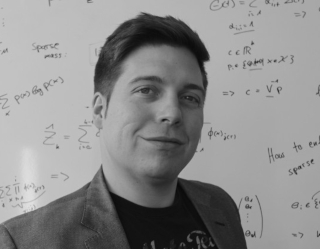 Densely inhabited urban regions pose an overwhelming amount of highly demanding tasks in the upcoming decades. Among them energy consumption, supply, logistics, pollution, and public transport---to mention just a few. Intelligent transportation systems (ITS) help us to address a multitude of these challenges at once. Based on machine learning and data mining techniques, ITS extract new insights from smart city data, reduce the overall complexity, and optimize the way we move and exchange goods. In this talk, I summarize some of the fundamental problems and explain how machine learning could solve them. More precisely, we'll investigate the prediction of traffic jams, the classification of vehicle types, and the prediction of communication network usage. Moreover, we'll discuss some basic ideas on how specific machine learning methods can be deployed in these scenarios.
Densely inhabited urban regions pose an overwhelming amount of highly demanding tasks in the upcoming decades. Among them energy consumption, supply, logistics, pollution, and public transport---to mention just a few. Intelligent transportation systems (ITS) help us to address a multitude of these challenges at once. Based on machine learning and data mining techniques, ITS extract new insights from smart city data, reduce the overall complexity, and optimize the way we move and exchange goods. In this talk, I summarize some of the fundamental problems and explain how machine learning could solve them. More precisely, we'll investigate the prediction of traffic jams, the classification of vehicle types, and the prediction of communication network usage. Moreover, we'll discuss some basic ideas on how specific machine learning methods can be deployed in these scenarios.
About the speaker(s): N/A
Main Course: Machine Learning and Data Mining
Automated Machine Learning (AutoML)
by Prof. Dr. Frank Hutter
 The success of machine learning crucially relies on human machine learning experts, who construct appropriate features and workflows, and select appropriate machine learning paradigms, algorithms, neural architectures, and their hyperparameters. Automated Machine Learning (AutoML) is an emerging research area that targets the progressive automation of machine learning, which uses machine learning and optimization to develop off-the-shelf machine learning methods. It targets both ML researchers and non-ML experts, easing and enabling the use of machine learning algorithms. AutoML covers a broad range of subfields, including hyperparameter optimization, neural architecture search and meta-learning. The first part of this tutorial will cover the methods underlying the current state of the art in this fast-paced field and the second part will contain hands-on exercises using state-of-the-art AutoML tools.
The success of machine learning crucially relies on human machine learning experts, who construct appropriate features and workflows, and select appropriate machine learning paradigms, algorithms, neural architectures, and their hyperparameters. Automated Machine Learning (AutoML) is an emerging research area that targets the progressive automation of machine learning, which uses machine learning and optimization to develop off-the-shelf machine learning methods. It targets both ML researchers and non-ML experts, easing and enabling the use of machine learning algorithms. AutoML covers a broad range of subfields, including hyperparameter optimization, neural architecture search and meta-learning. The first part of this tutorial will cover the methods underlying the current state of the art in this fast-paced field and the second part will contain hands-on exercises using state-of-the-art AutoML tools.
About the speaker(s):
- Frank Hutter: Frank Hutter is a Professor for Machine Learning at the Computer Science Department of the University of Freiburg (Germany), where he previously was an assistant professor 2013-2017. Before that, he was at the University of British Columbia (UBC) for eight years, for his PhD and postdoc. Frank's main research interests lie in machine learning, artificial intelligence and automated algorithm design. For his 2009 PhD thesis on algorithm configuration, he received the CAIAC doctoral dissertation award for the best thesis in AI in Canada that year, and with his coauthors, he received several best paper awards and prizes in international competitions on machine learning, SAT solving, and AI planning. Since 2016 he holds an ERC Starting Grant for a project on automating deep learning based on Bayesian optimization, Bayesian neural networks, and deep reinforcement learning. Frank has taught tutorials at ICML, NeurIPS, IJCAI, AAAI, and CVPR. He also co-organizes the AutoML workshop at ICML and the Meta-Learning workshop series at NeurIPS.
- Matthias Feurer: Matthias Feurer is a fifth year PhD student in the Machine Learning Lab at the Computer Science Department of the University of Freiburg (Germany). His research focuses on automated machine learning, hyperparameter optimization and meta-learning. He is the first author and main developer of the popular AutoML software Auto-sklearn, won several prizes in AutoML competitions, and co-organized the 2019 ICML workshop on AutoML. He also teaches a tutorial on AutoML at GCPR 2019.
Deep Learning
by Dr. Grégoire Montavon
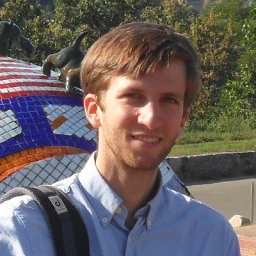 The first part of the presentation will introduce the basic concepts of the neural network graphs and error backpropagation for classification and regression. Various models (e.g. CNNs/RNNs) will then be presented, as well as techniques for optimization and regularization to train deep networks quickly and accurately. A last part of the presentation will focus on methods to assess the quality of a trained network, in particular, we will present recent techniques that expose to the user what the model has learned and what strategy it uses to predict. In the hands-on session, a simple neural network will be constructed and trained on some well-known dataset. The second part of the hands-on session will take a larger deep convolutional network for images and implement techniques to better understand what the model has learned and how it decides.
The first part of the presentation will introduce the basic concepts of the neural network graphs and error backpropagation for classification and regression. Various models (e.g. CNNs/RNNs) will then be presented, as well as techniques for optimization and regularization to train deep networks quickly and accurately. A last part of the presentation will focus on methods to assess the quality of a trained network, in particular, we will present recent techniques that expose to the user what the model has learned and what strategy it uses to predict. In the hands-on session, a simple neural network will be constructed and trained on some well-known dataset. The second part of the hands-on session will take a larger deep convolutional network for images and implement techniques to better understand what the model has learned and how it decides.
About the speaker(s): Grégoire Montavon received a Masters degree in Communication Systems from École Polytechnique Fédérale de Lausanne, in 2009 and a Ph.D. degree in Machine Learning from the Technische Universität Berlin, in 2013. He is currently a Research Associate in the Machine Learning Group at TU Berlin. His research interests include interpretable machine learning and deep neural networks.
Basics of Machine Learning and Data Mining
by Dr. Florian Lemmerich
 In this session we give an introduction into the fundamentals of machine learning and data mining. We discuss the main machine learning tasks (e.g., regression, classification and clustering), and provide a broad overview of main approaches for these tasks and their evaluation. In the augmenting hands-on part, we do practical exercises with the scikit-learn library in Python.
In this session we give an introduction into the fundamentals of machine learning and data mining. We discuss the main machine learning tasks (e.g., regression, classification and clustering), and provide a broad overview of main approaches for these tasks and their evaluation. In the augmenting hands-on part, we do practical exercises with the scikit-learn library in Python.
About the speaker(s): Florian Lemmerich is a tenured researcher and lecturer at RWTH Aachen University. Florian received his PhD in 2014 from the University of Würzburg. Afterwards, he did a postdoc as a data scientist at "gesis - Leibniz Institute for the Social Sciences" before joining the chair for Computational Social Sciences and Humanities at RWTH Aachen University. Florian works at the intersection of computer sciences and social sciences. His main research interests are pattern mining, understanding social data and human-centered AI. For his research, he received multiple awards including a best paper at ECML/PKDD.
Track 1: Volunteered Geographical Information
Modeling Human Behavior
by Dr. Filippo Simini
 This session will give you an overview on the modelling approaches to generate realistic human mobility patterns. After an introduction to the main research questions and challenges in human mobility, we will review the various sources of mobility data currently available (Call Detail Records, GPS tracks, Location Based Social Networks) and briefly discuss standard preprocessing operations on trajectory data (filtering, compression, stay point detection). We will continue with the analysis of some of the existing modelling approaches to generate synthetic mobility (collective flows and individual trajectories), discussing their advantages and limitations. We will conclude with a hands-on modelling session where you'll have the opportunity to use statistical and machine learning techniques to come up with a generative model of synthetic mobility. For the demonstrations and visualisations during the lecture the python library "scikit-mobility" will be used.
This session will give you an overview on the modelling approaches to generate realistic human mobility patterns. After an introduction to the main research questions and challenges in human mobility, we will review the various sources of mobility data currently available (Call Detail Records, GPS tracks, Location Based Social Networks) and briefly discuss standard preprocessing operations on trajectory data (filtering, compression, stay point detection). We will continue with the analysis of some of the existing modelling approaches to generate synthetic mobility (collective flows and individual trajectories), discussing their advantages and limitations. We will conclude with a hands-on modelling session where you'll have the opportunity to use statistical and machine learning techniques to come up with a generative model of synthetic mobility. For the demonstrations and visualisations during the lecture the python library "scikit-mobility" will be used.
About the speaker(s): Filippo Simini is a Lecturer in the department of Engineering Mathematics at the University of Bristol, UK, and a fellow of the Alan Turing institute, the UK institute for data science and artificial intelligence. He is an expert in human mobility modelling and has extensive experience in working with various types of big data sources related to human activity and human behaviour. He is particularly interested in interdisciplinary problems and applications including collective and individual human mobility modelling, transportation, population dynamics and disaster resilience.
Deep Learning for Geospatial Data Analysis
by Dr. Jan Dirk Wegner
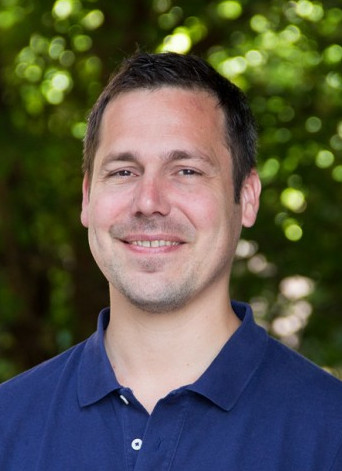 We will teach a half-day tutorial on deep learning split into half theoretical lecture and half hands-on programming exercise (in Python). The content introduces the major concepts of convolutional neural networks, how backpropagation works, and how we can apply this rich set of tools to geospatial data. It is targeted at Master students, PhDs and senior researchers who already have a basic understanding of multi-variate statistics.
We will teach a half-day tutorial on deep learning split into half theoretical lecture and half hands-on programming exercise (in Python). The content introduces the major concepts of convolutional neural networks, how backpropagation works, and how we can apply this rich set of tools to geospatial data. It is targeted at Master students, PhDs and senior researchers who already have a basic understanding of multi-variate statistics.
About the speaker(s):
- Jan Dirk Wegner: Dr. Jan Dirk Wegner is founder and head of the EcoVision Lab at ETH Zurich, which aims at establishing a research group at the frontier of machine learning and computer vision to solve ecological questions. Its objective is to invent original, data-driven methods at the interface of computer science, ecology, and engineering that analyse environmental data at very large scale automatically. Jan Dirk Wegner joined the Photogrammetry and Remote Sensing group at ETH in 2012 after completing his PhD (with distinction) at Leibniz Universität Hannover in 2011. He has published more than 40 peer-reviewed papers and his funding portfolio (ca. 2.5 million CHF) has allowed him to establish new lines of research in geospatial computer vision and deep machine learning. He was granted multiple awards, among others an ETH Postdoctoral fellowship and the science award of the German Geodetic Commission.
- Nico Lang: Nico is a PhD student at ETH Zurich and joined the EcoVision Lab at the Photogrammetry and Remote Sensing group in 2018. During his master's degree in Geomatics he discovered his fascination for Machine Learning and Computer Vision in the context of geodata sciences. He has used Deep Learning to assess individual tree health from grould level images like Google Street View and is now focusing on large-scale real-world problems exploiting publicly available satellite data. As a university researcher, he sees the opportunity to use his technical know-how to work on challenging global issues that may be economically unattractive for the tech industry and therefore receive too little attention. His current research focuses on scene interpretation of remote sensing data at large scale. More specifically, he investigates the use of deep learning approaches to model physical quantities like for example biomass from satellite images. Furthermore, he is interested in time series analysis and change detection in the context of deforestation in tropical rainforests.
OpenStreetMap Quality and Machine Learning
by Dr. Padraig Corcoran
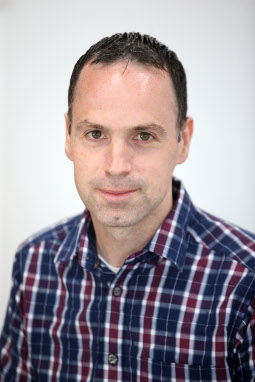 An ever-increasing number of applications require complete and up-to-date spatial data, in particular maps. However, mapping is an expensive process and the vastness and dynamics of our world usually render centralized and authoritative maps outdated and incomplete. In this context crowd-sourced maps have the potential to provide a complete, up-to-date, and free representation of our world. However, the proliferation of such maps largely remains limited due to concerns about their data quality. While most of the current data quality assessment mechanisms for such maps require referencing to authoritative maps, we argue that such referencing is ineffective. Instead we focus on the use of machine learning techniques that can not only allow the assessment but also recommend improvements to the quality of such maps without reference to external databases. We will present a number of works in this area with a focus on the OpenStreetMap project which is the most successful project for crowd-sourced maps.
An ever-increasing number of applications require complete and up-to-date spatial data, in particular maps. However, mapping is an expensive process and the vastness and dynamics of our world usually render centralized and authoritative maps outdated and incomplete. In this context crowd-sourced maps have the potential to provide a complete, up-to-date, and free representation of our world. However, the proliferation of such maps largely remains limited due to concerns about their data quality. While most of the current data quality assessment mechanisms for such maps require referencing to authoritative maps, we argue that such referencing is ineffective. Instead we focus on the use of machine learning techniques that can not only allow the assessment but also recommend improvements to the quality of such maps without reference to external databases. We will present a number of works in this area with a focus on the OpenStreetMap project which is the most successful project for crowd-sourced maps.
About the speaker(s): Dr. Padraig Corcoran obtained his PhD in computer science from Maynooth University in Ireland and subsequently worked as a post-doctoral researcher in University College Dublin Ireland. In 2013 he was awarded a European Marie Curie International Outgoing Fellowship which he completed at the MIT Computer Science & Artificial Intelligence Laboratory. He started his current position as Assistant Professor in computer science at Cardiff University UK in 2015. Dr Corcoran's main research interests are in the areas of machine learning, optimisation and applied topology with applications in spatial information science. Such applications include optimising the placement of electrical vehicle charging stations, safe pedestrian routing and object tracking. Dr Corcoran has worked on the topic of crowd sourced spatial data for many years with a particular focus on data quality issues in the OpenStreetMap project.
Track 2: Quality of Experience
Deep Learning for Image Quality Assessment
by Dr. Vlad Hosu
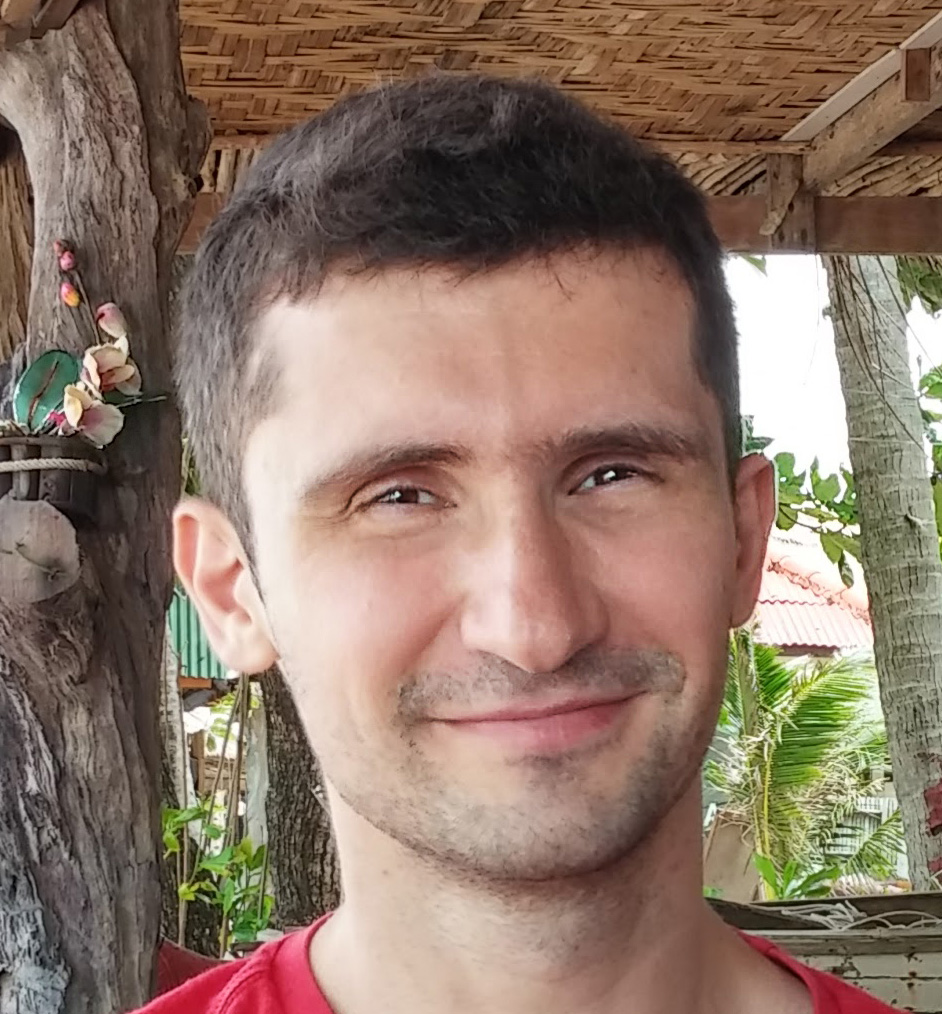 Deep learning is pushing the limits of technical and aesthetic image quality assessment (IQA). Larger and more reliable datasets for IQA in-the-wild have been developed, and deep architectures can efficiently handle massive sets of hi-res images. The lecture will discuss the state of the art and what the future holds given the limitations of subjective assessment, and availability of training data.
Deep learning is pushing the limits of technical and aesthetic image quality assessment (IQA). Larger and more reliable datasets for IQA in-the-wild have been developed, and deep architectures can efficiently handle massive sets of hi-res images. The lecture will discuss the state of the art and what the future holds given the limitations of subjective assessment, and availability of training data.
About the speaker(s): Vlad Hosu is a PostDoc at University of Konstanz, having graduated his PhD at National University of Singapore on photographic enhancement. In his current work he creates better models for image and video quality assessment. This amounts to larger and better databases in-the-wild and deep learning based supporting approaches.
Quality of Experience - Measuring Quality from the End-user Perspective
by Dr. Raimund Schatz
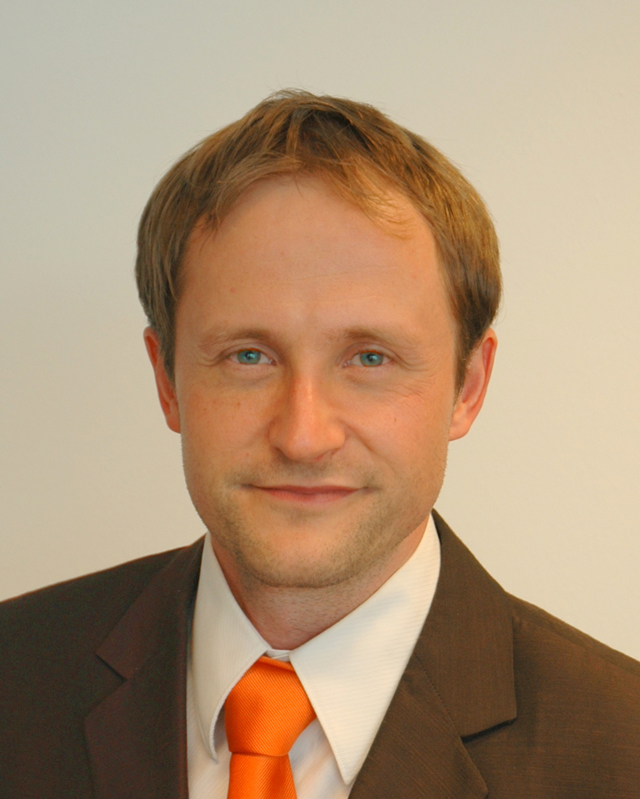 This lecture provides an introduction to the concept of Quality of Experience (QoE) and its operationalization in subjective experiments. To this end we first review its origins as well as the most useful definitions and frameworks that map the main QOE constituents and use cases. In the second part we go about operationalizing QoE, with a focus on how to design and conduct subjective QoE experiments that provide valid and reliable results.
This lecture provides an introduction to the concept of Quality of Experience (QoE) and its operationalization in subjective experiments. To this end we first review its origins as well as the most useful definitions and frameworks that map the main QOE constituents and use cases. In the second part we go about operationalizing QoE, with a focus on how to design and conduct subjective QoE experiments that provide valid and reliable results.
About the speaker(s): Dr. Raimund Schatz is Senior Scientist at the AIT Austrian Institute of Technology, Center for Technology Experience, where is heading the "Data-driven Experience Research" Team. Before he was Key Researcher and Area Manager at the Telecommunications Research Center Vienna, Department of User-centered Interaction, Services, and Systems Quality. Raimund Schatz holds an Msc. in Telematics (TU-Graz), a PhD in Informatics (TU-Vienna), as well as an MBA and an MSc. from Open University Business School (UK). He is (co-)author of more than 130 publications in the areas of Quality of Experience, Service Quality, HCI and Pervasive Computing. Furthermore, he has been actively involved in a number of QoE-related EU projects and networking activities, including Optiband (FP7), CELTIC QuEEN and COST Actions IC1003 Qualinet and IC1304 ACROSS, as well as the organization of various QoE-related conferences and workshops (e.g. QoENAM 2014, QoE-FI 2016, QCMAN 2016, QoE-Management 2017, QoMEX 2018, and QoMEX 2019).
Haptic Material Data Acquisition and Display
by Matti Strese, M.Sc.
 This lectures presents current material data acquisition and display devices. In particular, surface texture-related acquisition techniques and features are discussed to create a material parametrization based on perceptually relevant tactile dimensions, e.g., microscopic and macroscopic roughness. Such representations can be used for material classification based on common Machine Learning classifiers, or, to drive haptic display technologies which currently face several challenges due to human perception.
This lectures presents current material data acquisition and display devices. In particular, surface texture-related acquisition techniques and features are discussed to create a material parametrization based on perceptually relevant tactile dimensions, e.g., microscopic and macroscopic roughness. Such representations can be used for material classification based on common Machine Learning classifiers, or, to drive haptic display technologies which currently face several challenges due to human perception.
About the speaker(s): Matti Strese studied Electrical Engineering at the Technical University of Munich (Germany). He received the Master of Science degree in July 2014. After this he joined the Media Technology Group at the Technical University of Munich in September 2014, where he is working as a member of the research staff and toward the PhD degree. His current research interests are in the field of analysis of haptic texture signals, surface classification and artificial surface synthesis devices.
Assessing and Modeling Gaming QoE
by Prof. Dr. Lea Skorin-Kapov
 Assessing and modeling QoE for networked games is inherently complex due to the multitude of factors involved in understanding a player's experience and satisfaction. Playing games is a human-machine interaction-based activity, oriented towards achieving game-related outcomes (generally linked to entertainment), as opposed to typical media delivery services such as audiovisual streaming. In the first part of the lecture we will discuss the various methodological challenges related to conducting gaming QoE studies. We will give an overview of best practices from state-of-the-art research as well as standardization efforts. In the second part of the lecture, we will discuss different QoE modeling techniques used in concrete case studies, including various linear statistical models and non-linear machine learning models for estimating gaming QoE.
Assessing and modeling QoE for networked games is inherently complex due to the multitude of factors involved in understanding a player's experience and satisfaction. Playing games is a human-machine interaction-based activity, oriented towards achieving game-related outcomes (generally linked to entertainment), as opposed to typical media delivery services such as audiovisual streaming. In the first part of the lecture we will discuss the various methodological challenges related to conducting gaming QoE studies. We will give an overview of best practices from state-of-the-art research as well as standardization efforts. In the second part of the lecture, we will discuss different QoE modeling techniques used in concrete case studies, including various linear statistical models and non-linear machine learning models for estimating gaming QoE.
About the speaker(s): Lea Skorin-Kapov is Associate Professor at the Faculty of Electrical Engineering and Computing at the University of Zagreb, Croatia, and head of the Multimedia Quality of Experience Research Lab (MUEXlab). Her research interests include Quality of Experience (QoE) modeling of multimedia applications, QoE monitoring of encrypted video traffic, cross-layer negotiation and management of QoS/QoE, and resource allocation and optimization mechanisms. She was previously employed as a senior research engineer and project manager in the Research and Development Center of Ericsson Nikola Tesla, Croatia. She has published over 90 scientific papers, and serves on the editorial boards of IEEE Transactions on Network and Service Management and Springer's Multimedia Systems journal, and has served as Guest Editor for the IEEE Journal of Selected Topics in Signal Processing, and ACM Transactions on Multimedia Computing, Communications, and Applications.
Track 3: Human Computer Interaction
Vision and Language for Explainable Artificial Intelligence
by Dr. Zeynep Akata
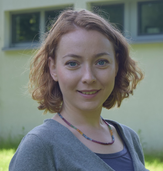 Clearly explaining a rationale for a classification decision to an end-user can be as important as the decision itself. Existing approaches for deep visual recognition are generally opaque and do not output any justification text; contemporary vision-language models can describe image content but fail to take into account class-discriminative image properties which justify visual predictions. In this talk, I will present my past and current work on Zero-Shot Learning, Vision and Language for Generative Modeling and Explainable Artificial Intelligence where we show (1) how to generalize image classification models to cases when no visual training data is available, (2) how to generate images and image features using detailed visual descriptions, and (3) how our models focus on discriminating properties of the visible object, jointly predict a class label, explain why/not the predicted label is chosen for the image.
Clearly explaining a rationale for a classification decision to an end-user can be as important as the decision itself. Existing approaches for deep visual recognition are generally opaque and do not output any justification text; contemporary vision-language models can describe image content but fail to take into account class-discriminative image properties which justify visual predictions. In this talk, I will present my past and current work on Zero-Shot Learning, Vision and Language for Generative Modeling and Explainable Artificial Intelligence where we show (1) how to generalize image classification models to cases when no visual training data is available, (2) how to generate images and image features using detailed visual descriptions, and (3) how our models focus on discriminating properties of the visible object, jointly predict a class label, explain why/not the predicted label is chosen for the image.

NOVA - A tool for eXplainable Cooperative Machine Learning
by Dr. Tobias Baur
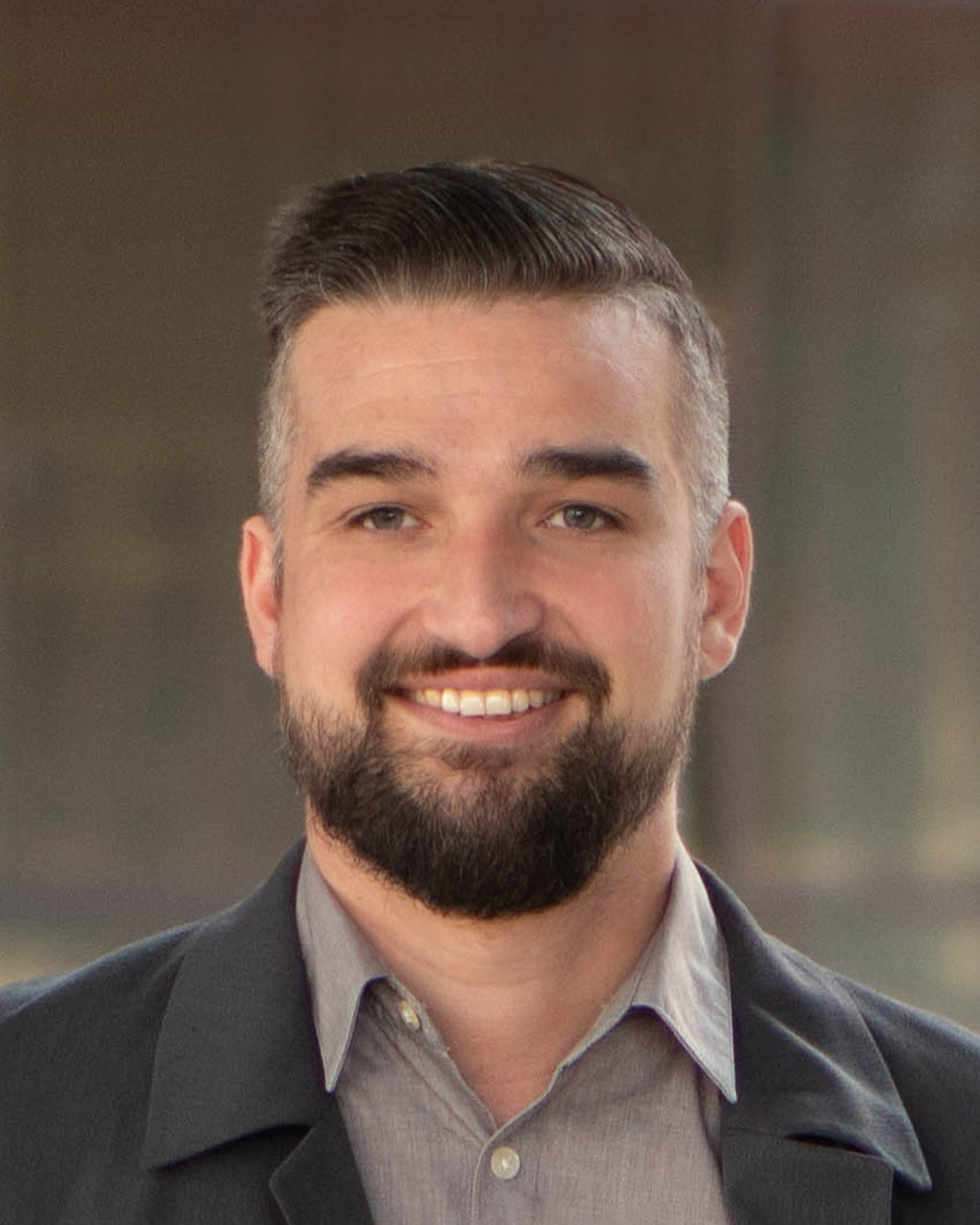 In this session we investigate an interactive machine learning workflow that allows Machine Learning experts - and non non-experts - to train their own ML models. We therefore introduce important concepts and give a hands-on session on the open-source tool NOVA. A main aspect of NOVA is the possibility of applying semi-supervised active learning where Machine Learning techniques are used already during the annotation process by giving the possibility to pre-label data automatically. Furthermore, NOVA implements recent eXplainable AI (XAI) techniques to provide users with both, a confidence value of the automatically predicted annotations, as well as visual explanation. This way, annotators get to understand whether they can trust their ML models, or more annotated data is necessary.
In this session we investigate an interactive machine learning workflow that allows Machine Learning experts - and non non-experts - to train their own ML models. We therefore introduce important concepts and give a hands-on session on the open-source tool NOVA. A main aspect of NOVA is the possibility of applying semi-supervised active learning where Machine Learning techniques are used already during the annotation process by giving the possibility to pre-label data automatically. Furthermore, NOVA implements recent eXplainable AI (XAI) techniques to provide users with both, a confidence value of the automatically predicted annotations, as well as visual explanation. This way, annotators get to understand whether they can trust their ML models, or more annotated data is necessary.
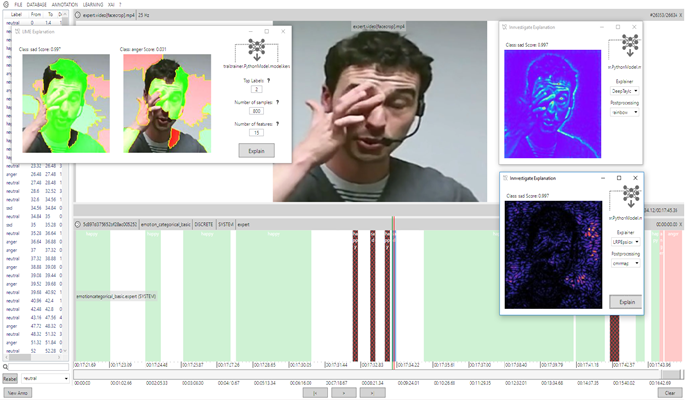
An Introduction to Virtual Humans
by Dr. Christoph Lassner
 In this talk I will give an overview of techniques for creating realistic virtual humans. This covers the entire process of (1) data collection and computer perception of humans, (2) modelling virtual humans and (3) rendering techniques for virtual humans. For each step, I will present an overview of selected recent work, covering topics such as 3D human mesh recovery from 2D data, creating human models from 3D scans and point clouds and current approaches towards rendering, enhanced by machine learning.
In this talk I will give an overview of techniques for creating realistic virtual humans. This covers the entire process of (1) data collection and computer perception of humans, (2) modelling virtual humans and (3) rendering techniques for virtual humans. For each step, I will present an overview of selected recent work, covering topics such as 3D human mesh recovery from 2D data, creating human models from 3D scans and point clouds and current approaches towards rendering, enhanced by machine learning.